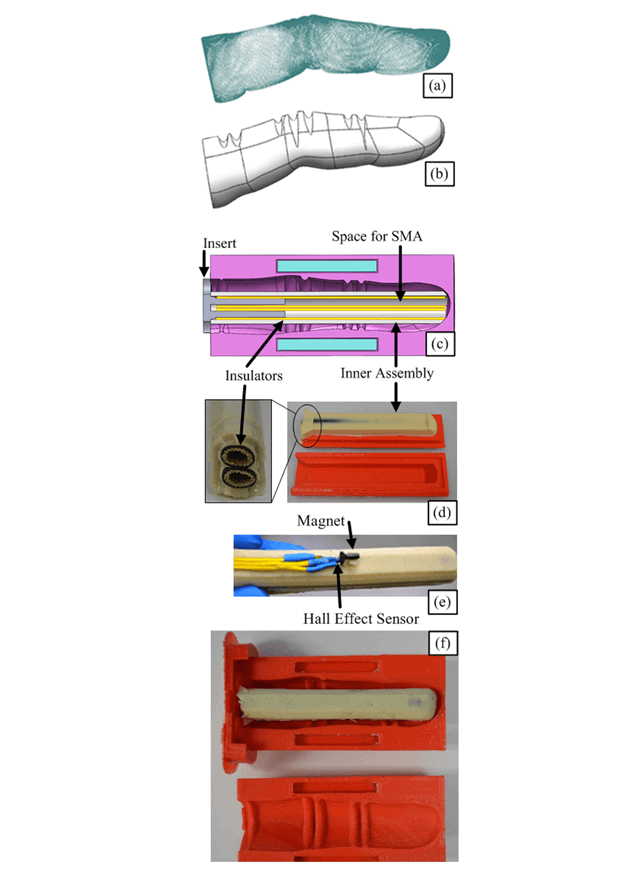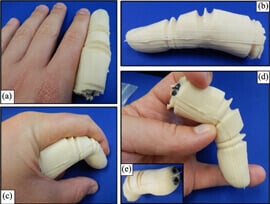Inspired by biology and nature: A 3D printed finger is improving prosthetics while using a combination of new technologies.
While most robotic body parts which we see today have limited motion range and don’t look particularly lifelike, a new robotic finger that has been inspired by biology and nature was designed to look and feel the part.
Thermal Training for 3D Printed Fingers
In an article published recently in the journal Bioinspiration & Biomimetics, Erik Engeberg, Ph.D., describes how he has developed and tested this robotic finger.
His method includes a 3D CAD model of a human finger, a 3D printer, shape memory alloy (SMA) and a unique thermal training technique.
Engeberg is the assistant professor in the Department of Ocean and Mechanical Engineering within the College of Engineering and Computer Science at FAU. He said: “We have been able to thermomechanically train our robotic finger to mimic the motions of a human finger like flexion and extension. Because of its light weight, dexterity and strength, our robotic design offers tremendous advantages over traditional mechanisms, and could ultimately be adapted for use as a prosthetic device, such as on a prosthetic hand.”
How Does The 3D Printed Finger Work?
To make sure it looks authentic, a CAD model of the human finger was downloaded, and the fleshy inner and outer molds were printed by a 3D printer.
Shape memory alloys (SMA), remember and return to their original shapes even after they are deformed. However, the problem here is that to do this they need to be heated.
According to Engeberg there are still “challenges with this technology such as the lengthy amount of time it takes for them to cool and return to their natural shape.”
The team had applied heat by passing electric currents through a conductor during the testing process and have now decided that the technology will be used for underwater robots first, as the environment enables rapid cooling.
The technology isn’t quite ready to be used for limbs yet, but with testing continuing, there is hope for the future!
License: The text of "BioRobotic 3D Printed Finger Could Advance Prosthetics" by All3DP is licensed under a Creative Commons Attribution 4.0 International License.

